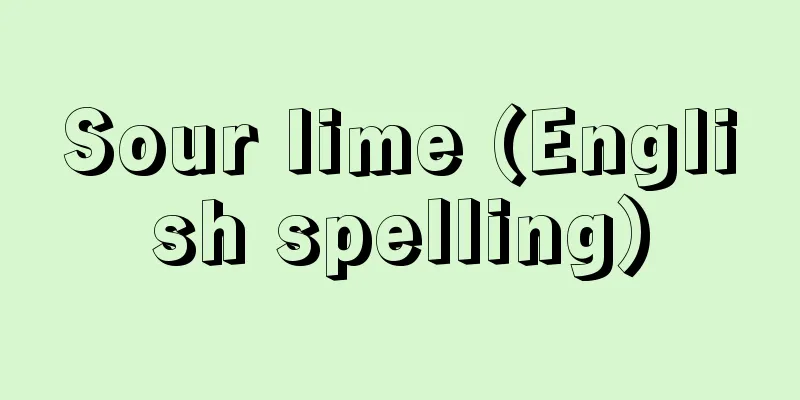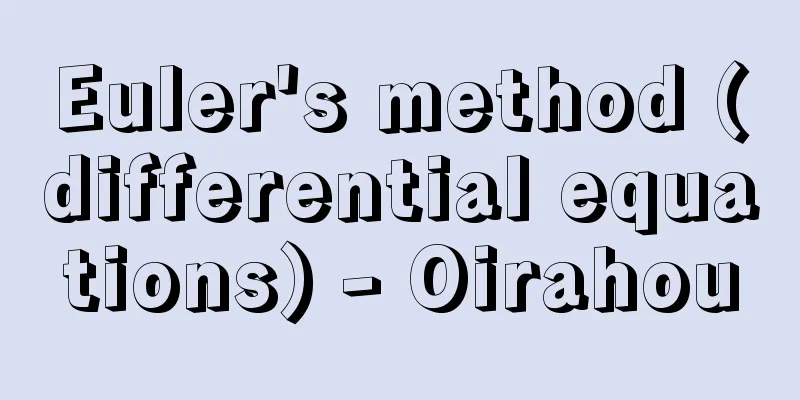Maurice Blanchot

|
French critic and novelist. Born in the Saône-et-Loire department. At first he wrote right-wing political commentary preaching a violent spiritual revolution, but from around 1941 he devoted himself to literature, and has maintained a pure impersonal style ever since. His interests as a writer have consistently focused on the strange spaces that emerge around death, and the structures of places where everyday time disappears. In his novels Thomas l'obscur (1941) and Aminadab (1942), he tells symbolic stories based on such motifs, fashioning them into fantastical tales. However, his novelistic narration was gradually stripped away thereafter, and L'Attente l'oubli (1962) has the feel of an extremely abstract novel. On the other hand, in collections of essays such as L'Espace littéraire (1955) and Le Livre à venir (The Book to Come) (1959), he takes Mallarmé and Kafka as examples and focuses on the fact that "when a writer tackles an original theme, he himself changes and becomes trapped in an elusive place similar to the space of death," analyzing what it means to write in the true sense of the word and the fate of literary thought that challenges the absolute. His thinking becomes even more radical in L'Entretien infini (The Endless Conversation) (1969), the collection of fragments Le Pas au-delà (The Walk to the Far Side) (1973), and L'Ecriture du désastre (The Writing of Disaster) (1980). He reveals that the act of writing as a "mad game, a gamble" (Mallarmé) ultimately leads to the scattering and end of literature itself. It precisely depicts the extreme conditions illustrated by the progress of literature and thought since the end of the 19th century, and clearly grasps the underlying dynamics of the contemporary literary and intellectual situation. On the other hand, around the time of the Algerian War, he resumed political statements from a position of absolute rejection of authority, and during the May Revolution he actively cooperated with the "Committee for the Action of Writers and Students." A series of memoirs, such as Après coup (1983), Les Intellectuels en question (1984), and Pour l'amitié (1996), illuminate the intersection of this political attitude and his inclination toward literature as a quest for the absolute. In particular, L'Instant de ma mort (1994) is a work that is uniquely his own, perhaps as a narrative or testimony of his own experience of narrowly escaping execution by German troops at the end of World War II. [Toru Shimizu] "Literary Space" translated by Awazu Norio and Deguchi Hirohiro (1962, Gendai Shichosha) ▽ "The Last Man, Expectation, Forgetting" translated by Toyosaki Koichi (1971, Hakusuisha) ▽ "The Supreme Being" translated by Shinozawa Hideo (1973, Gendai Shichosha) ▽ "On Kafka" and "On Mallarmé" translated by Awazu Norio (1977, Chikuma Shobo) ▽ "On Camus" translated by Shimizu Toru and Awazu Norio (1978, Chikuma Shobo) ▽ "Death Sentence" translated by Miwa Hidehiko (1978, Kawade Shobo Shinsha) ▽ "Aminadab" and "The Endless Dialogue" translated by Shimizu Toru, and "Thomas the Mysterious Man" translated by Kanno Akimasa (included in "Chikuma World Literature Series 82", 1982, Chikuma Shobo) ▽ "Lautreamont and Sade" translated by Toshiro Obama (1983, Kokubunsha)" ▽ "Madness in the Daylight" translated by Junichi Tanaka (1985, Asahi Publishing)" ▽ "Michel Foucault - As Reflected in Thoughts" translated by Koichi Toyosaki (1986, Tetsugaku Shobo)" ▽ "A Misstep" translated by Norio Awazu (1987, Chikuma Shobo)" ▽ "The Book to Come" translated by Norio Awazu, revised and updated edition (1989, Chikuma Shobo)" ▽ "The Complete Literature of Flame" translated by Tsuneyoshi Shigenobu and Morito Hashiguchi, newly reprinted edition (1997, Kinokuniya Shoten)" ▽ "In the Moment of My Death" translated by Hiroshi Taniguchi (1998, Miraisha) ▽ "The Moment of My Death" translated by Hiroo Yuasa et al. (included in Détention by Jacques Derrida, 2000, Miraisha)" ▽ "For Fraternity" translated by Shimizu Toru (2001, Society of "Liquiesta" (Transart))" ▽ "The Unrevealable Community" translated by Nishitani Osamu (Chikuma Gakugei Bunko)" ▽ "Outside Thinking - Blanchot, Bataille, Klossowski" by Michel Foucault, translated by Toyosaki Koichi (1978, Asahi Publishing)" ▽ "Yoshimoto Takaaki and Blanchot" by Yoshida Yutaka (1981, Yumitachisha)" ▽ "Maurice Blanchot" by Emmanuel Levinas, translated by Uchida Itsuki (1992, Kokubunsha)" ▽ "Separation and Displacement - Bataille, Blanchot, Duras" by Nishitani Osamu (1997, Serika Shobo)" ▽ "Proust/Bataille/Blanchot - Writing at the Crossroads" by Roger Laporte (1999, Suiseisha) Source: Shogakukan Encyclopedia Nipponica About Encyclopedia Nipponica Information | Legend |
|
フランスの評論家、小説家。ソーヌ・エ・ロアール県の生まれ。初めは激烈な精神革命を説く右翼的政治評論を書くが、1941年ごろから文学に専念、以来純潔な非人称性を貫く。作家としての関心は一貫して、死の周辺に浮かび上がる奇怪な空間、日常的時間の消える場の構造に集中する。小説『謎(なぞ)の男トマ』Thomas l'obscur(1941)、『アミナダブ』Aminadab(1942)は、そのようなモチーフを幻想的物語に仕立てて象徴的に語る。しかし小説的叙述は以後しだいにそぎ落とされ、『期待 忘却』L'Attente l'oubli(1962)は極限的な抽象小説の観がある。一方、『文学空間』L'Espace littéraire(1955)、『来るべき書物』Le Livre à venir(1959)などの評論集では、マラルメやカフカを例にとり、「作家が本源的な主題と取り組むとき、作家自体が変質して死の空間に似たとらえがたい場にはまり込む」ことに注目し、真の意味で書くとはなにか、絶対的なものに挑む文学思考のたどる運命を分析する。『終わりなき対話』L'Entretien infini(1969)、断章集『彼方(かなた)への歩み』Le Pas au-delà(1973)、『災厄のエクリチュール』L'Ecriture du désastre(1980)になると、思考はさらに先鋭化する。「気違いじみた戯れ=賭(か)け」(マラルメ)としての書く営みは、究極的には文学自体の散乱、終末となることを暴き出す。19世紀末以来の文学と思想の歩みが示す極限的なありようを精密に描き出し、現代の文学的・思想的状況の基底部の力学を明確にとらえるのだ。 他方、アルジェリア戦争のころから、権力の絶対的拒絶という立場による政治的発言を再開、五月革命では「作家学生行動委員会」に積極的に協力した。『事後に』Après coup(1983)、『問われる知識人』Les Intellectuels en question(1984)、『友愛のために』Pour l'amitié(1996)など一連の回想は、こうした政治的態度と、絶対の探究としての文学への志向との交点を照らしている。とりわけ『私の死の瞬間』L'Instant de ma mort(1994)は、第二次世界大戦末期に危うくドイツ軍の銃殺を免れた自らの経験の物語化なのか証言なのか、まさしくこの作家独自の方法による作品化である。 [清水 徹] 『粟津則雄・出口裕弘訳『文学空間』(1962・現代思潮社)』▽『豊崎光一訳『最後の人・期待 忘却』(1971・白水社)』▽『篠沢秀夫訳『至高者』(1973・現代思潮社)』▽『粟津則雄訳『カフカ論』『マラルメ論』(1977・筑摩書房)』▽『清水徹・粟津則雄訳『カミュ論』(1978・筑摩書房)』▽『三輪秀彦訳『死の宣告』(1978・河出書房新社)』▽『清水徹訳『アミナダブ』『終わりなき対話』、菅野昭正訳『謎の男トマ』(『筑摩世界文学大系82』所収・1982・筑摩書房)』▽『小浜俊郎訳『ロートレアモンとサド』(1983・国文社)』▽『田中淳一訳『白日の狂気』(1985・朝日出版社)』▽『豊崎光一訳『ミシェル・フーコー――想いに映るまま』(1986・哲学書房)』▽『粟津則雄訳『踏みはずし』(1987・筑摩書房)』▽『粟津則雄訳『来るべき書物』改訳新版(1989・筑摩書房)』▽『重信常喜・橋口守人訳『完本 焔の文学』新装復刊版(1997・紀伊國屋書店)』▽『谷口博史訳『望みのときに』(1998・未来社)』▽『湯浅博雄他訳『私の死の瞬間』(ジャック・デリダ著『滞留』所収・2000・未来社)』▽『清水徹訳『友愛のために』(2001・《リキエスタ》の会(トランスアート))』▽『西谷修訳『明かしえぬ共同体』(ちくま学芸文庫)』▽『ミシェル・フーコー著、豊崎光一訳『外の思考――ブランショ・バタイユ・クロソウスキー』(1978・朝日出版社)』▽『吉田裕著『吉本隆明とブランショ』(1981・弓立社)』▽『エマニュエル・レヴィナス著、内田樹訳『モーリス・ブランショ』(1992・国文社)』▽『西谷修著『離脱と移動――バタイユ・ブランショ・デュラス』(1997・せりか書房)』▽『ロジェ・ラポルト著『プルースト/バタイユ/ブランショ――十字路のエクリチュール』(1999・水声社)』 出典 小学館 日本大百科全書(ニッポニカ)日本大百科全書(ニッポニカ)について 情報 | 凡例 |
Recommend
Cephalanthera longibracteata (English spelling)
… [Ken Inoue]. … *Some of the terminology that me...
Noriaki Uesugi
A military commander during the Nanboku-cho perio...
O'Sullivan, JL - O'Sullivan
...A typical example of American expansionism, tr...
Pelican vulning
…This design is also the coat of arms of the U.S....
One year priest - Ichinenkannushi
The term refers to a person who takes turns presi...
Styrax benzoin
… [Toshio Hamatani]. … *Some of the terminology t...
Orcagna, J. - Orcagna
…Italian painter, sculptor, and architect. His br...
Ruminant stomach
The stomach of ruminants, which are mammals in th...
Gamou Ujisato
A military commander during the Azuchi-Momoyama p...
Luliang Mountains
A mountain range that runs northeast to southwest ...
Ramón Menéndez Pidal
1869‐1968 Spanish literary historian and linguist....
Epimedium - Ikarisou
A perennial herb of the Berberidaceae family (APG...
Okazakiya Kanroku
A calligrapher in the mid-Edo period. His pen name...
Musashino
[1][1] (Formerly "Muzashino") Broadly, i...
Kiev Monastery of the Caves
…Russian monk. Founder of the Kiev Monastery of t...






![Ando [town] - Ando](/upload/images/67cae2b76d404.webp)


